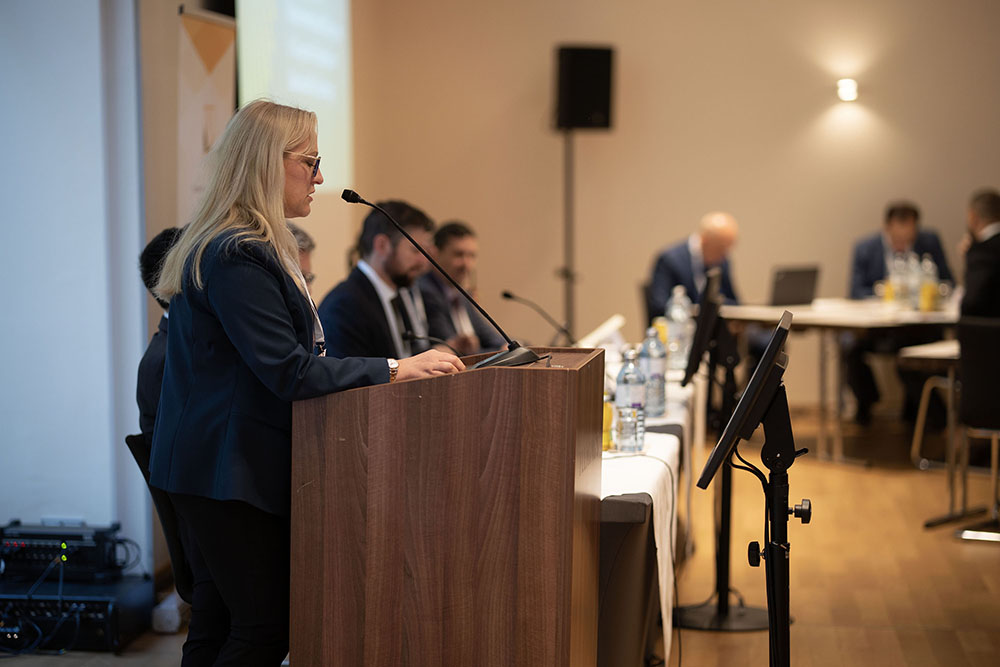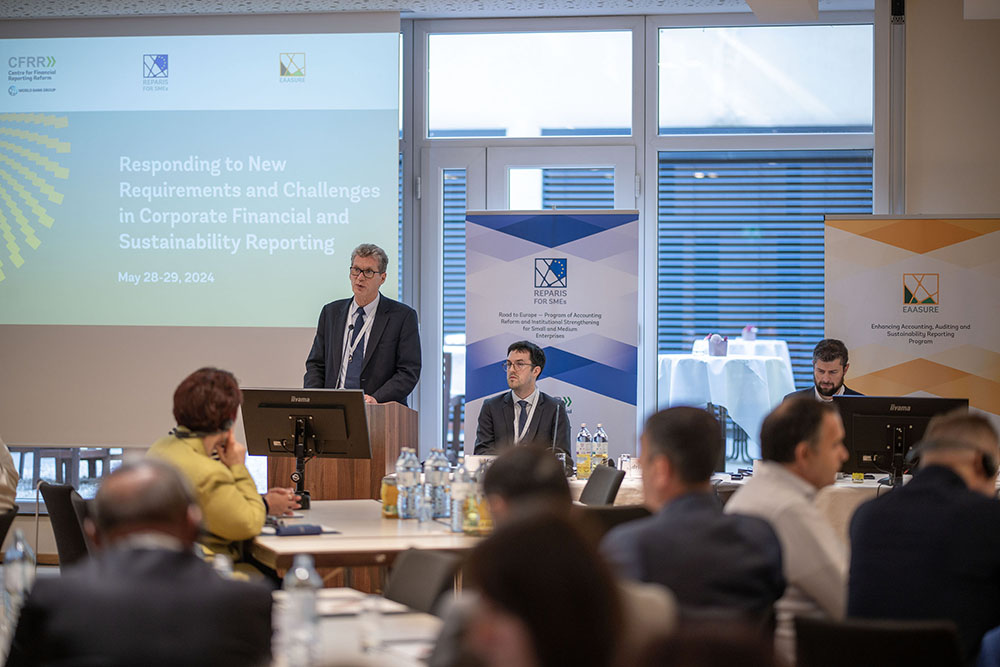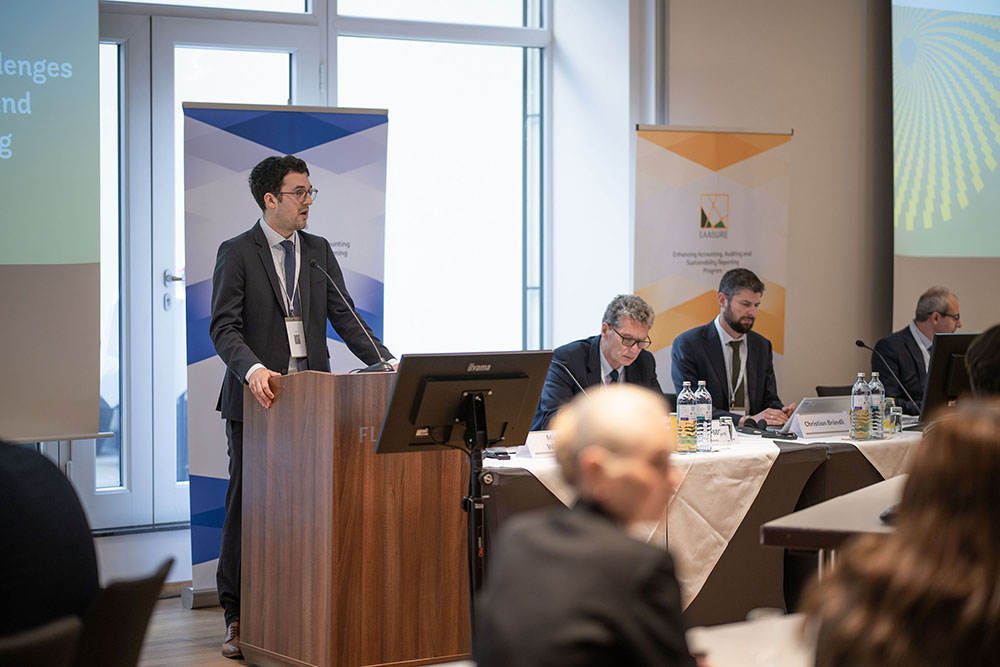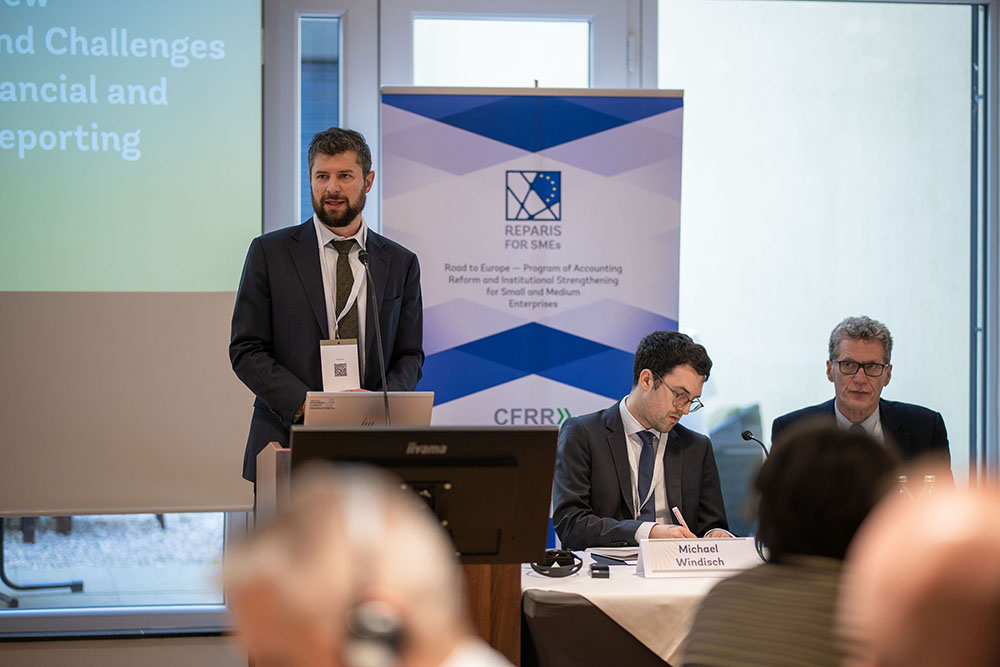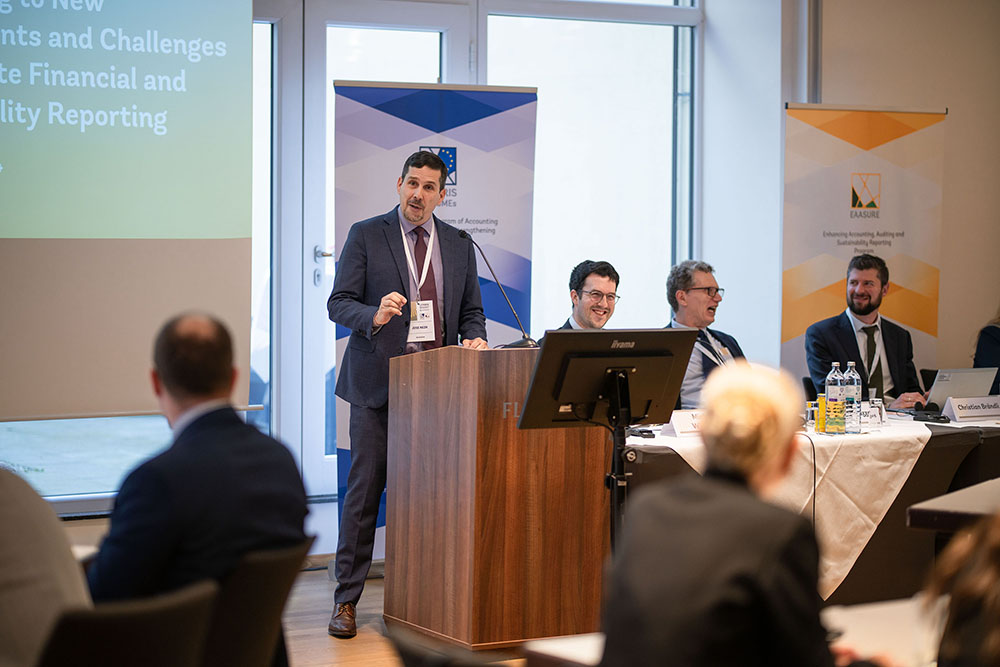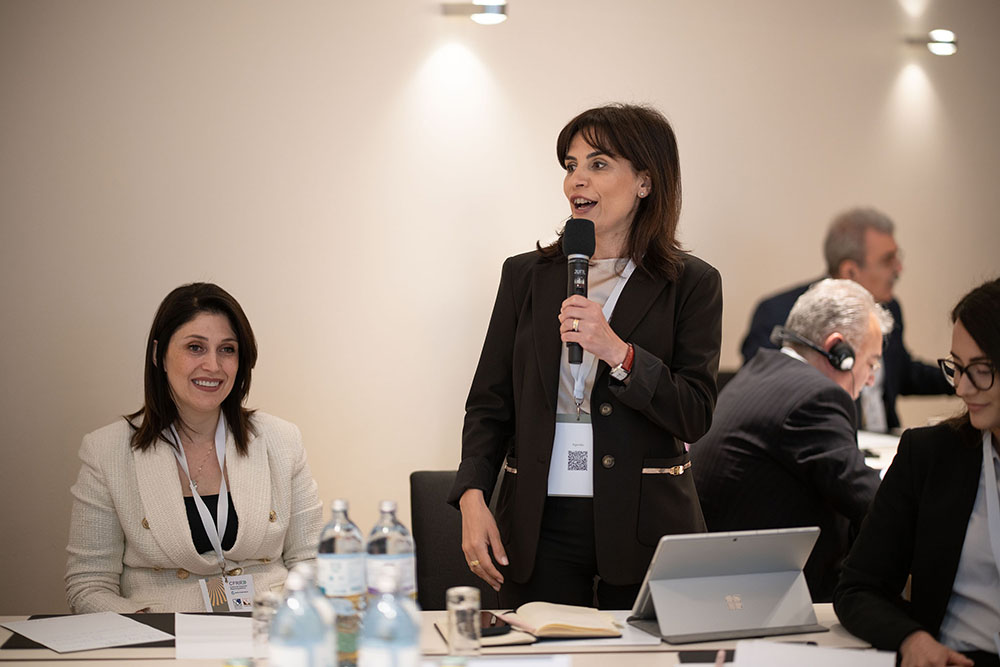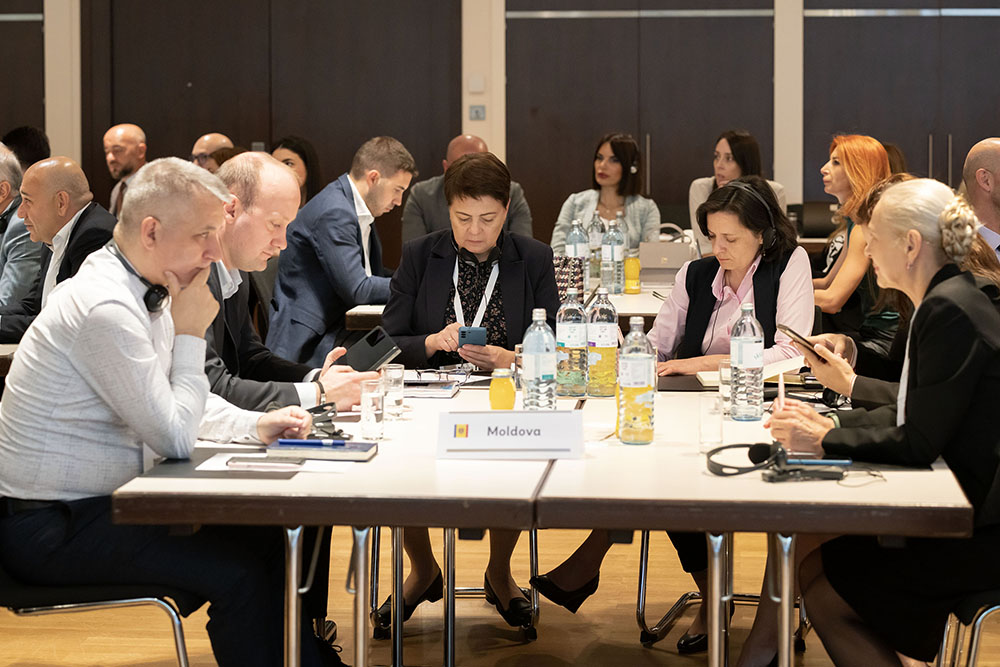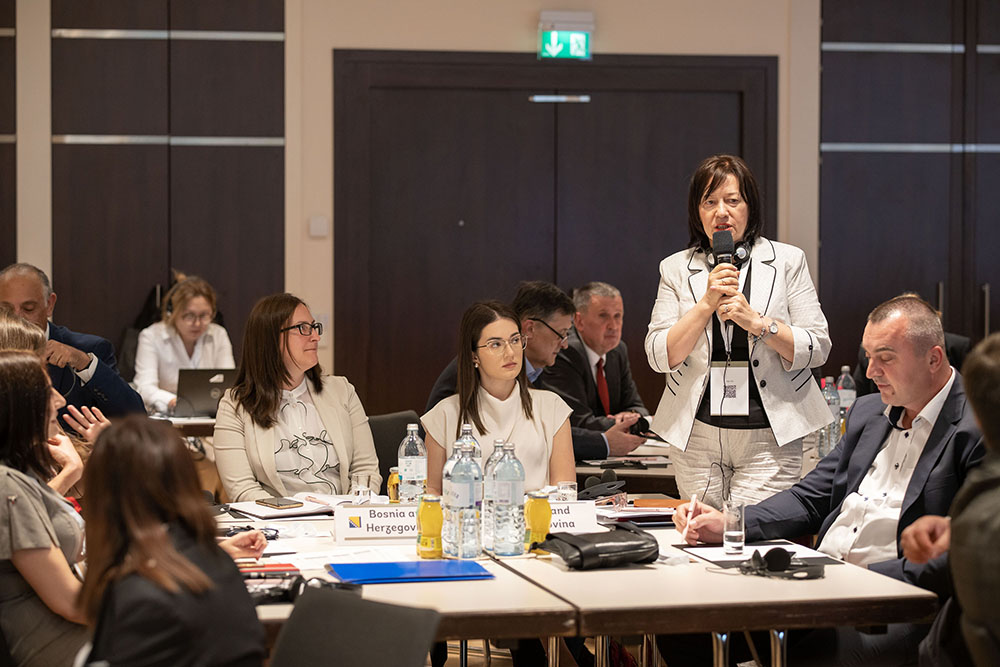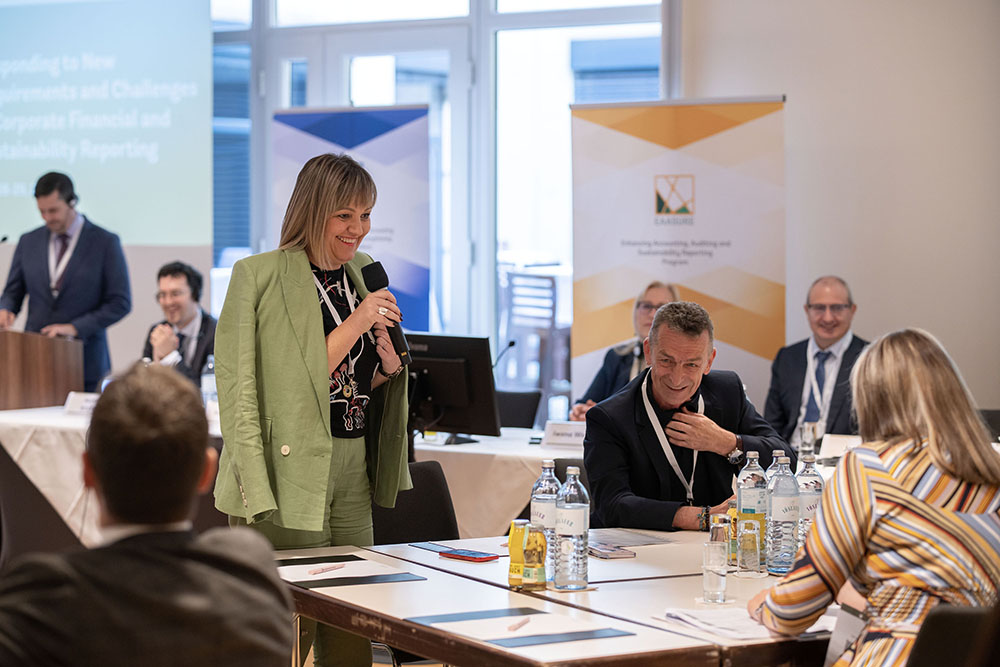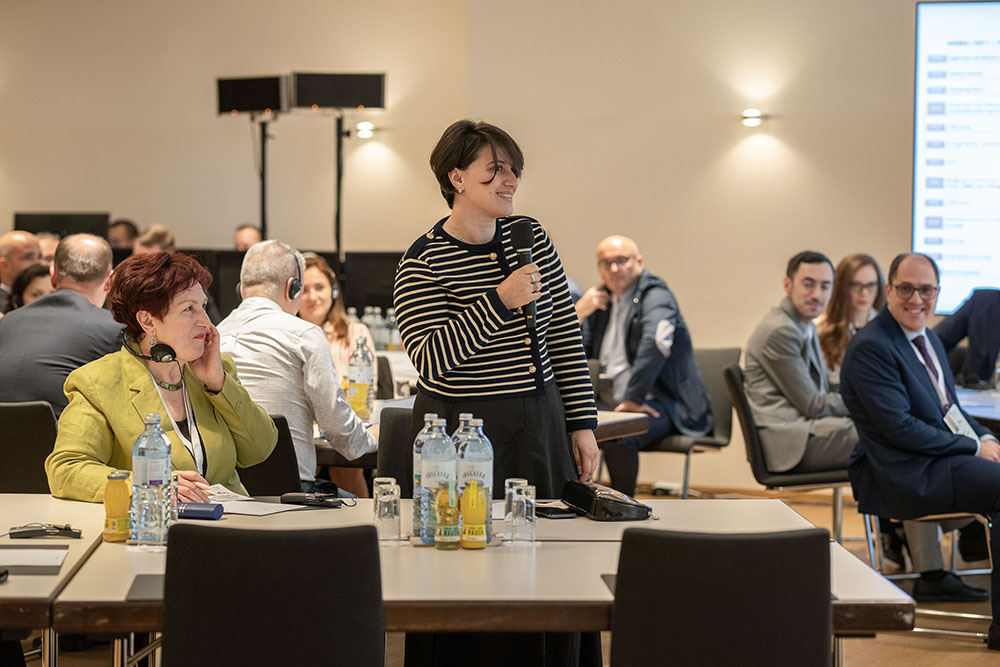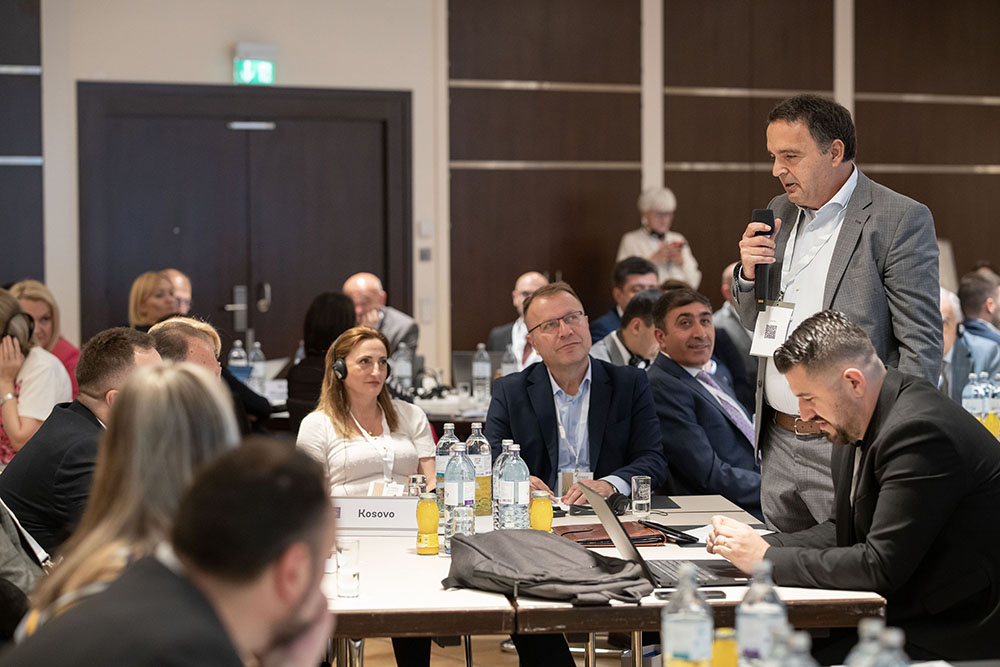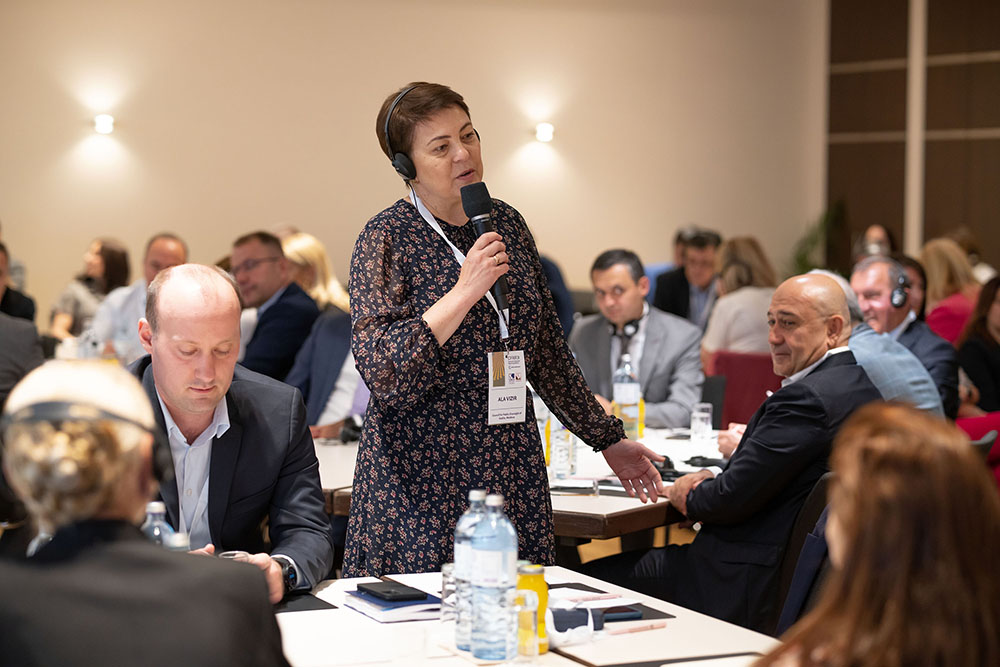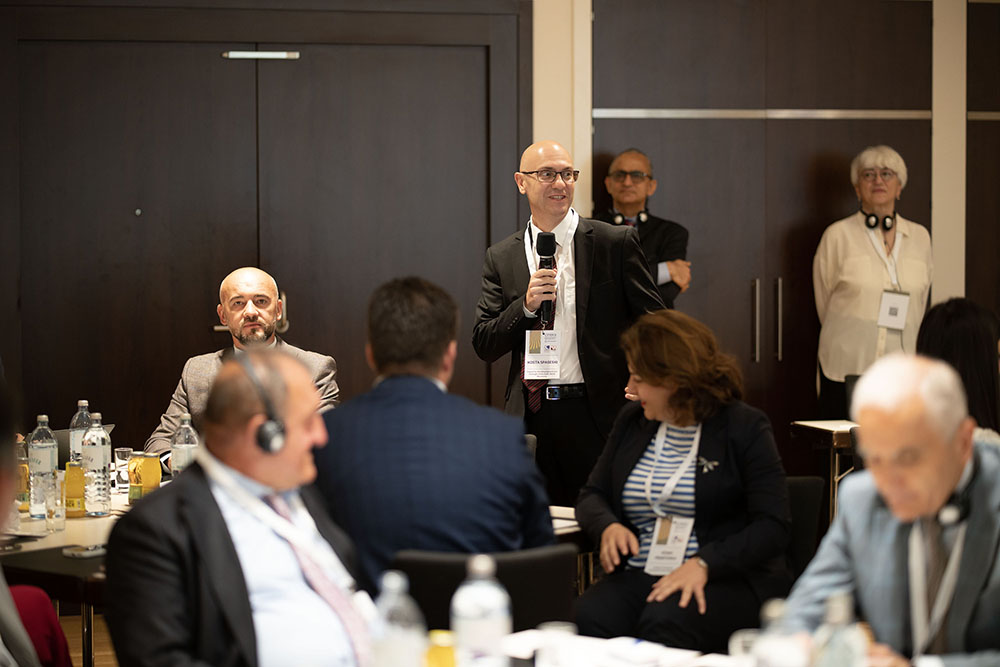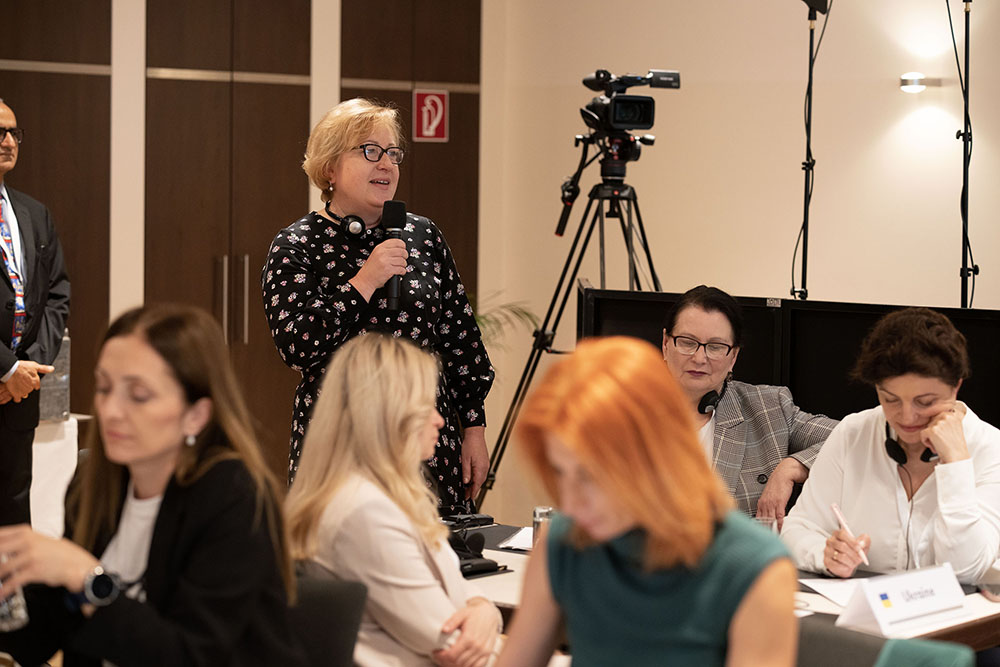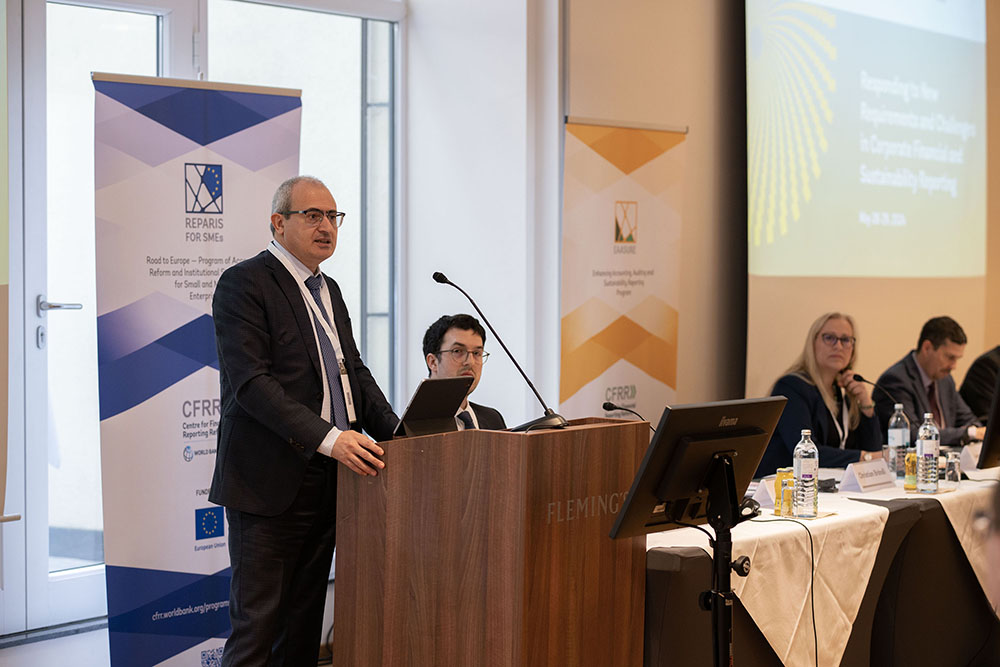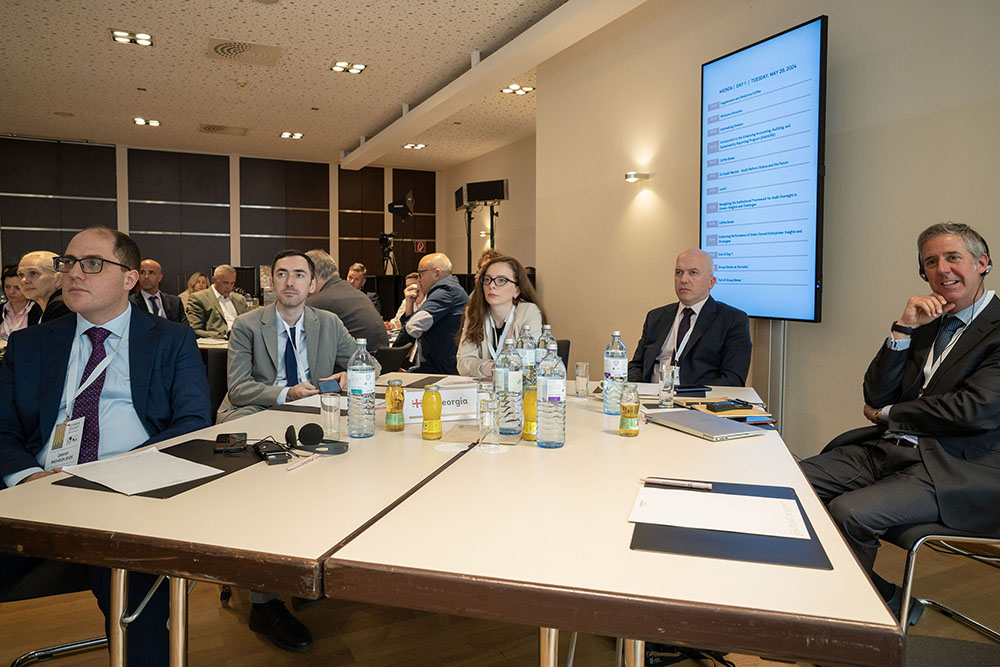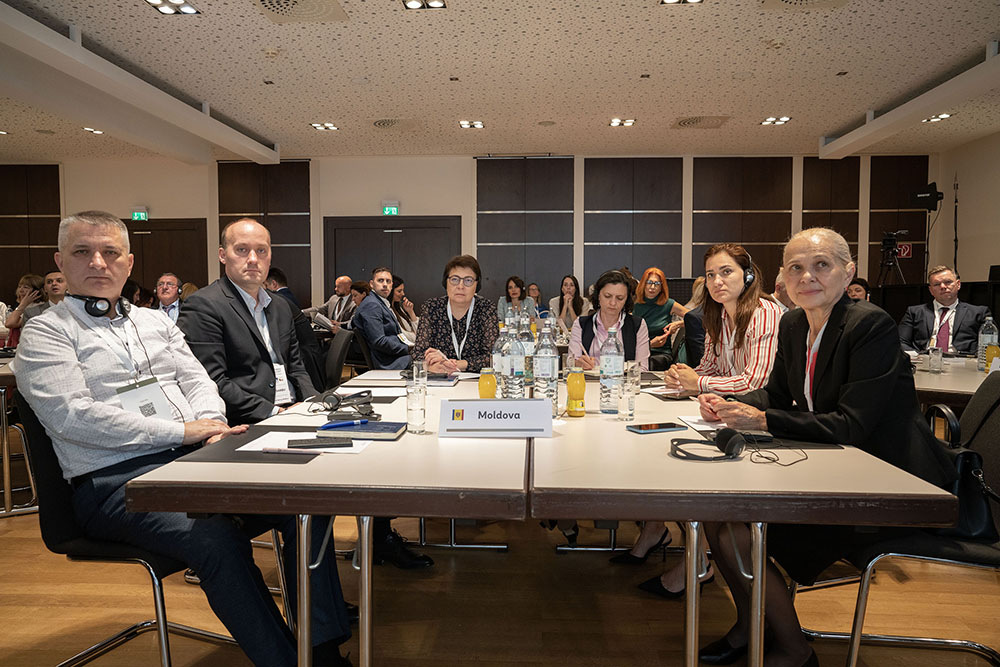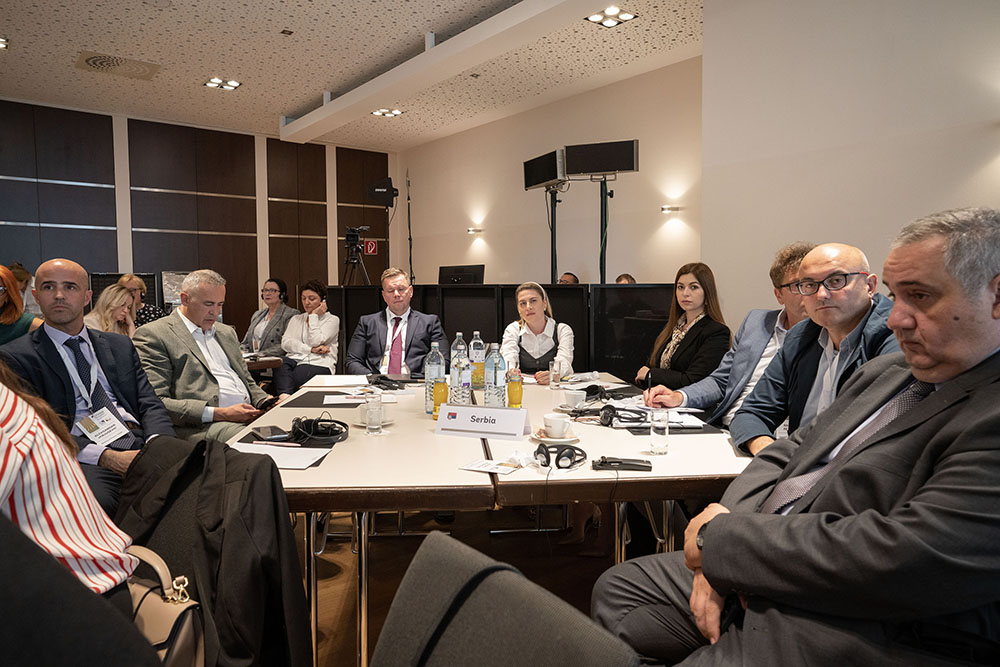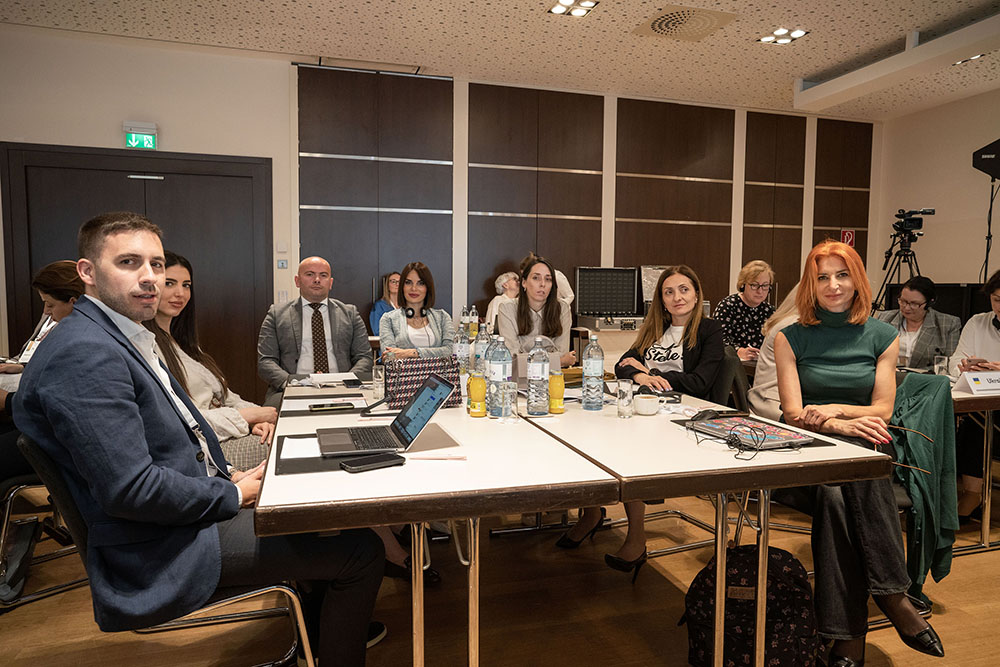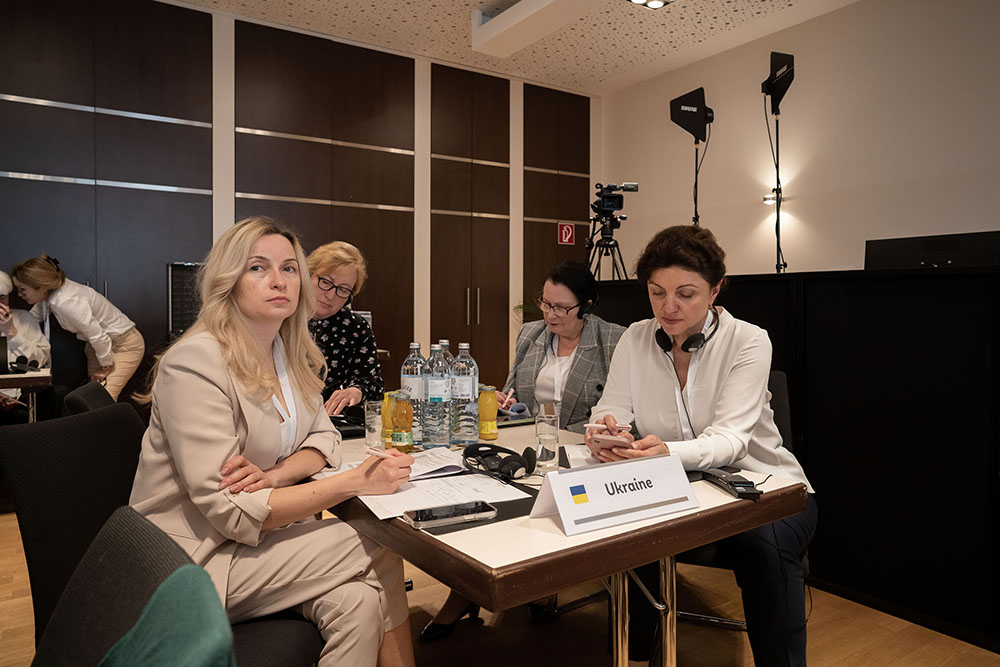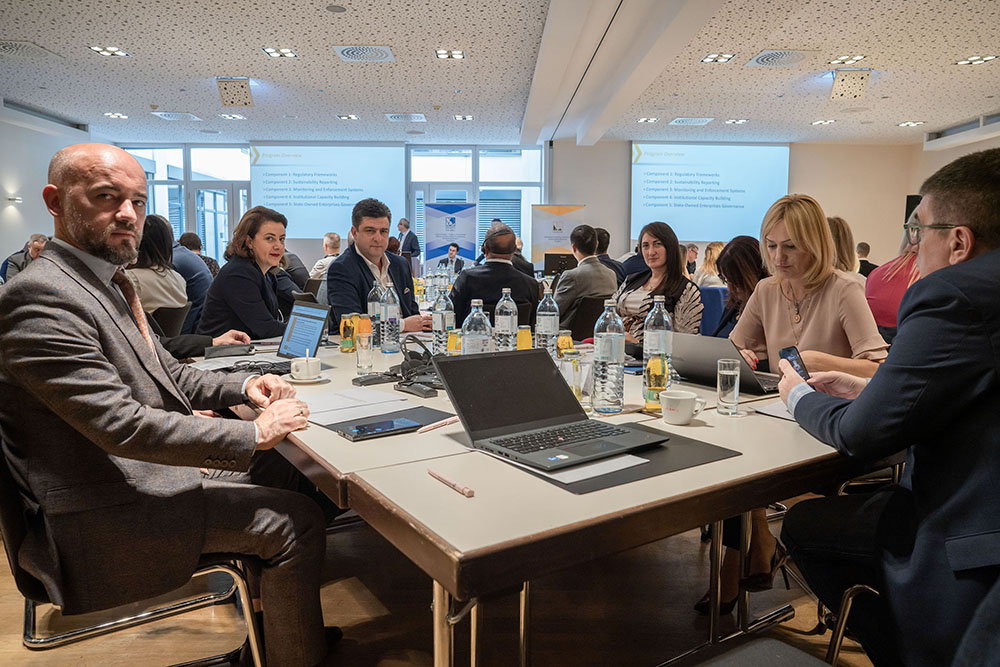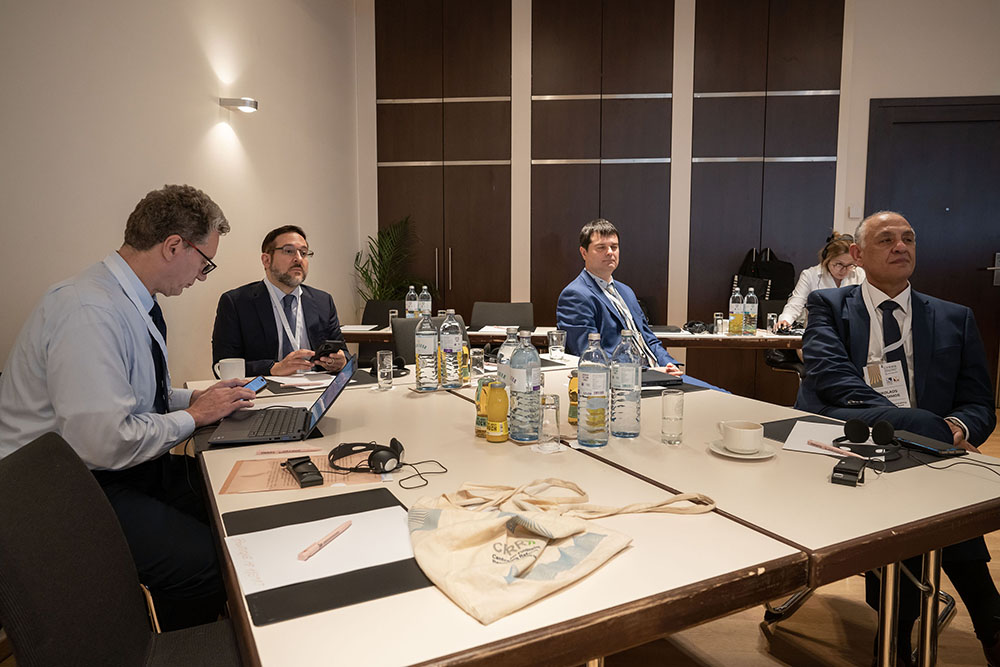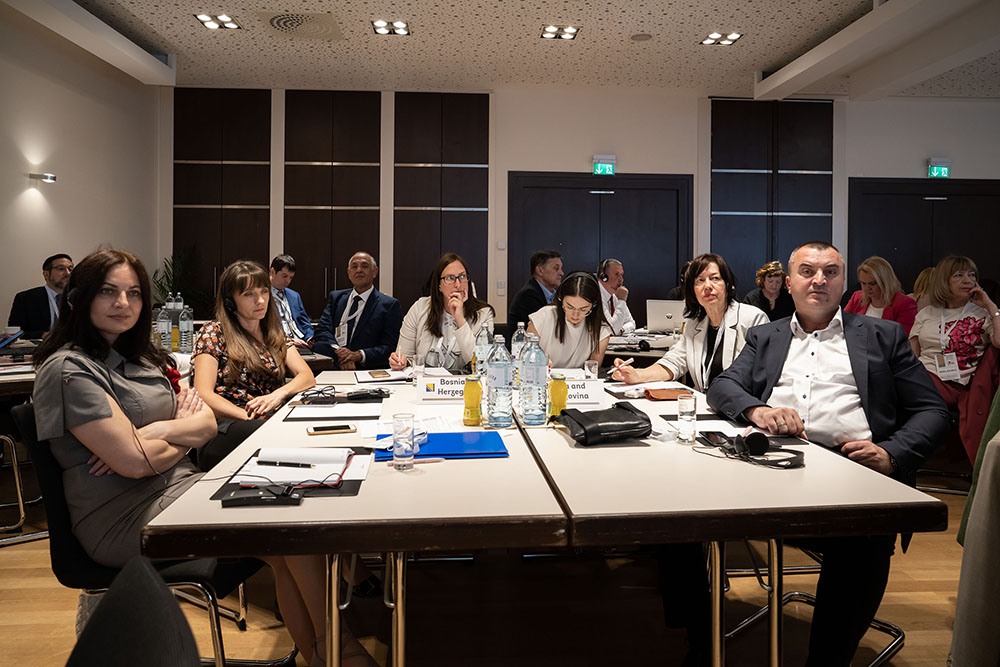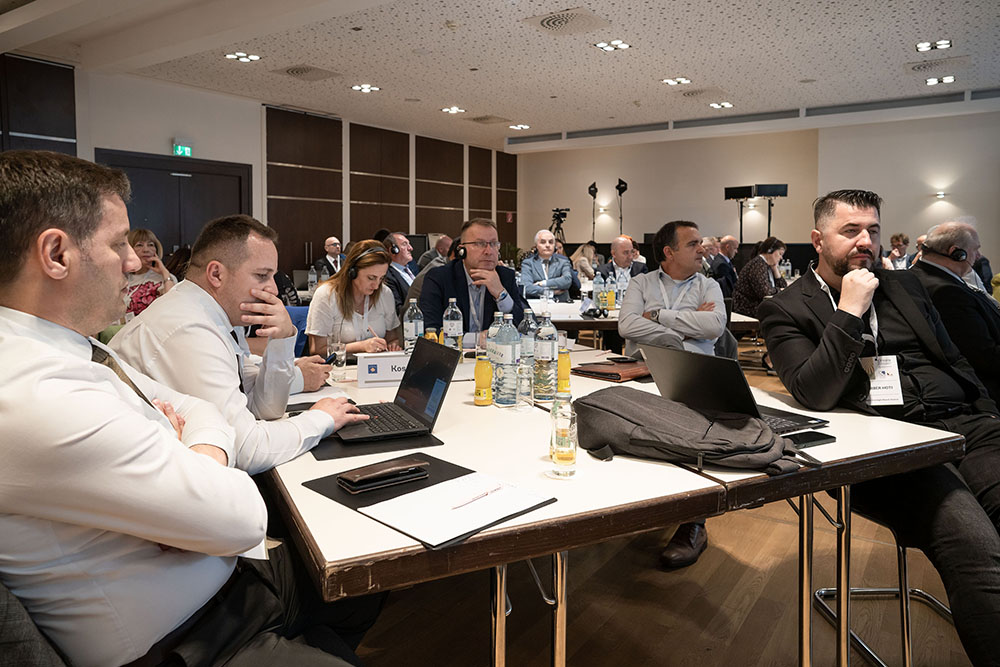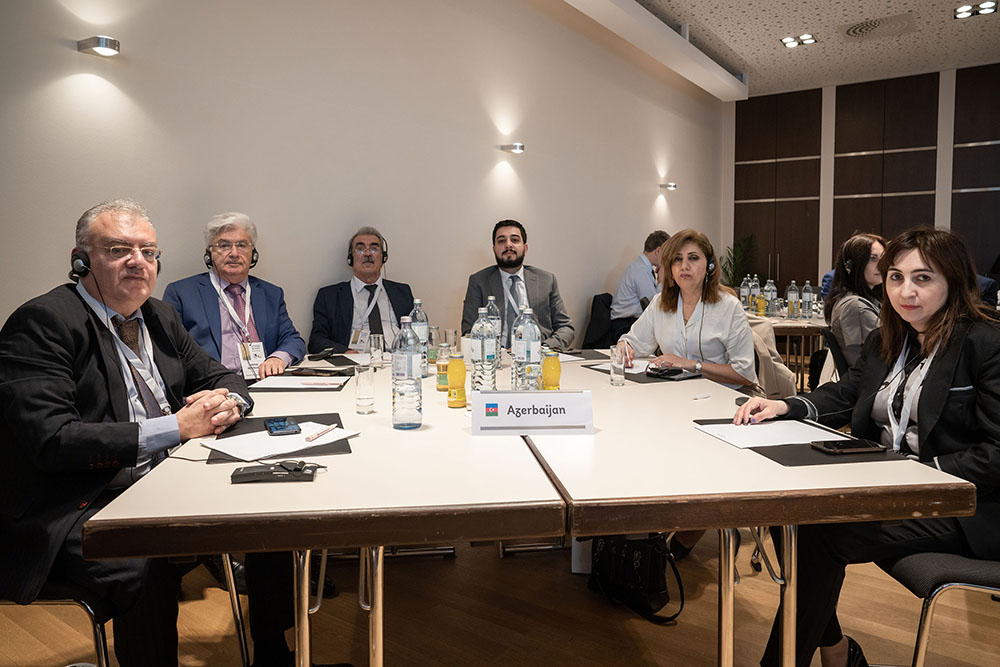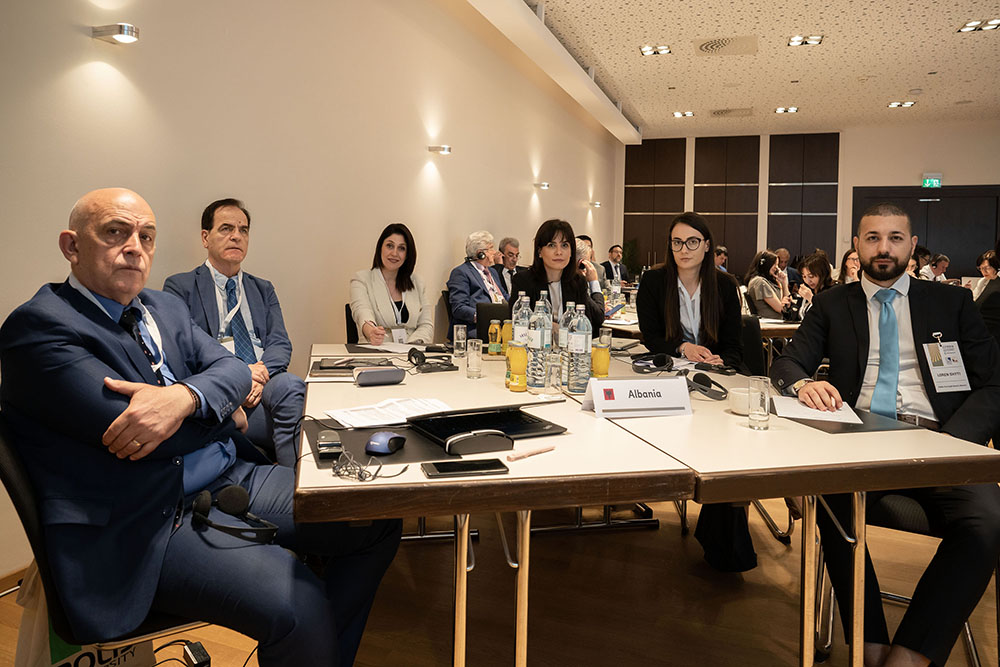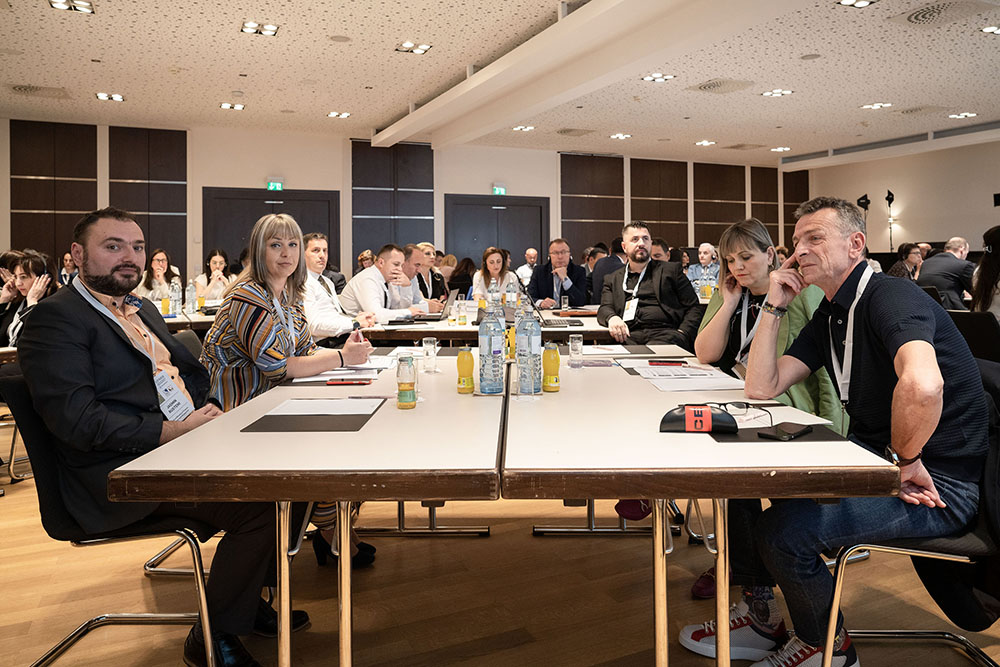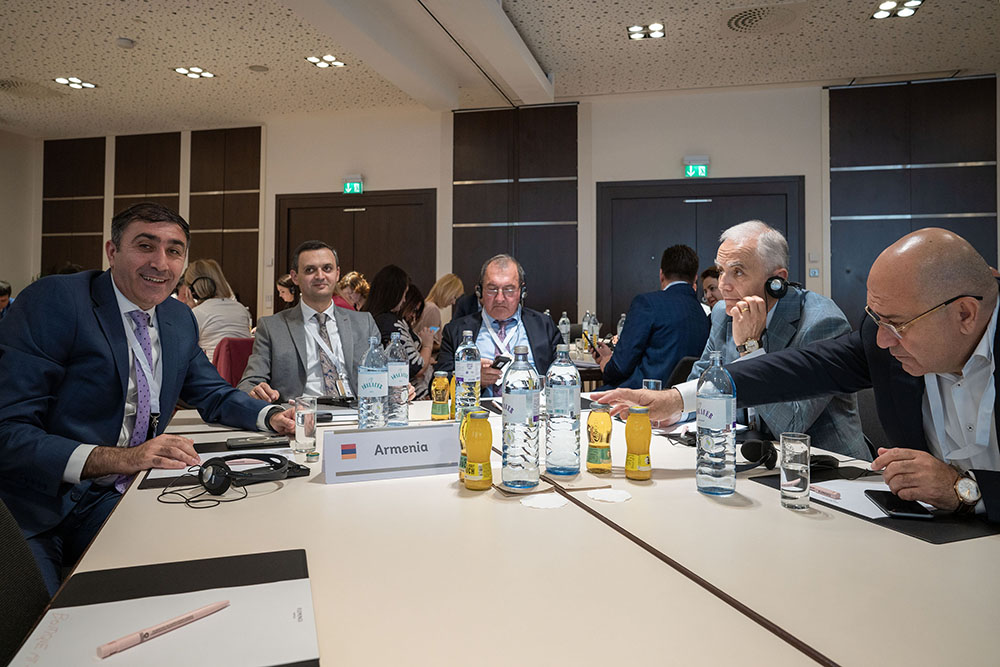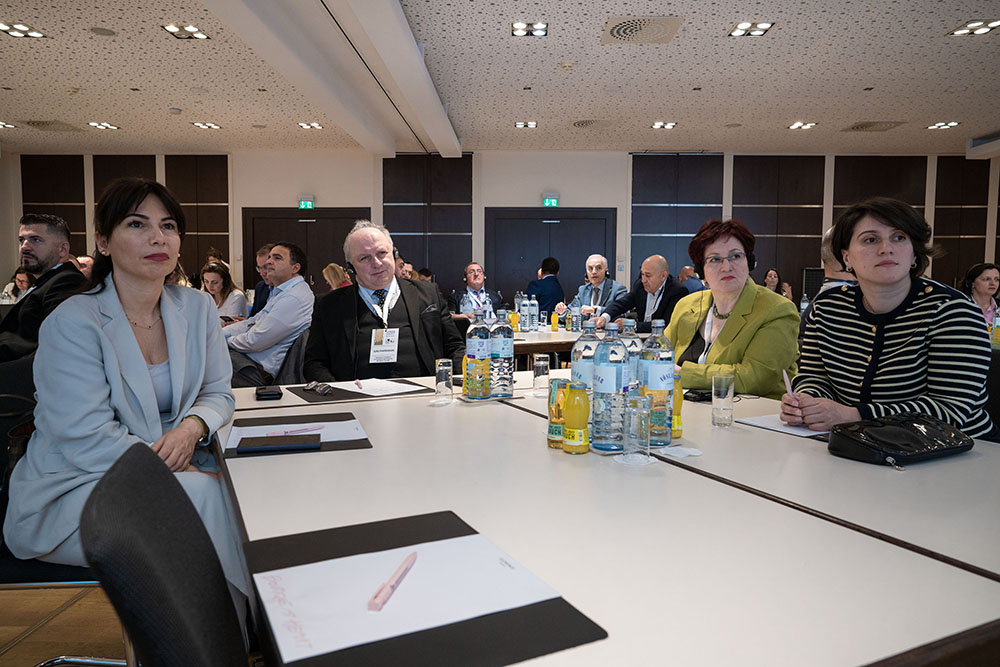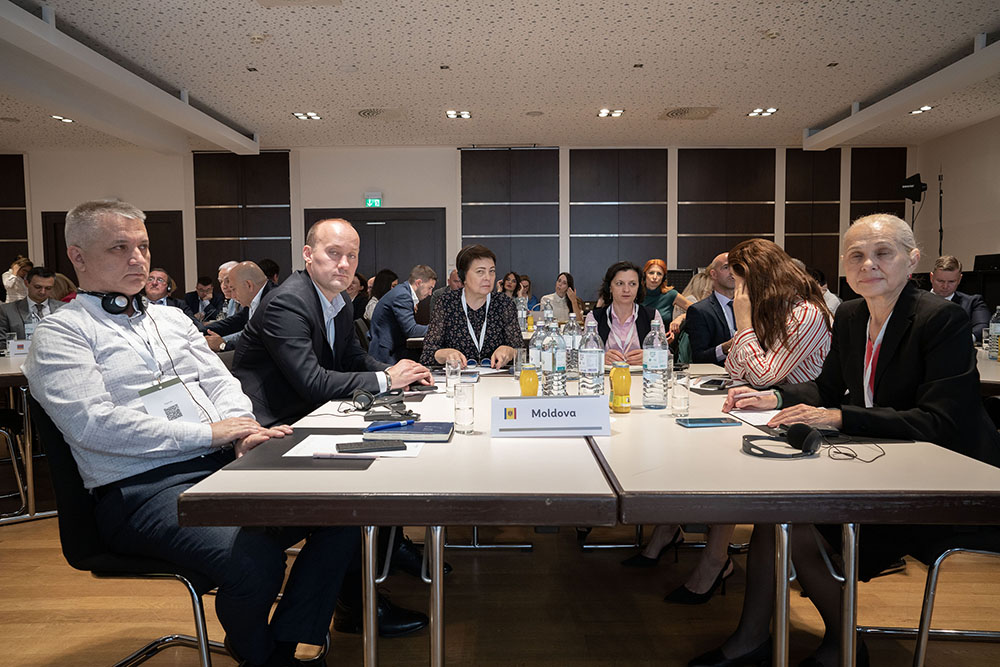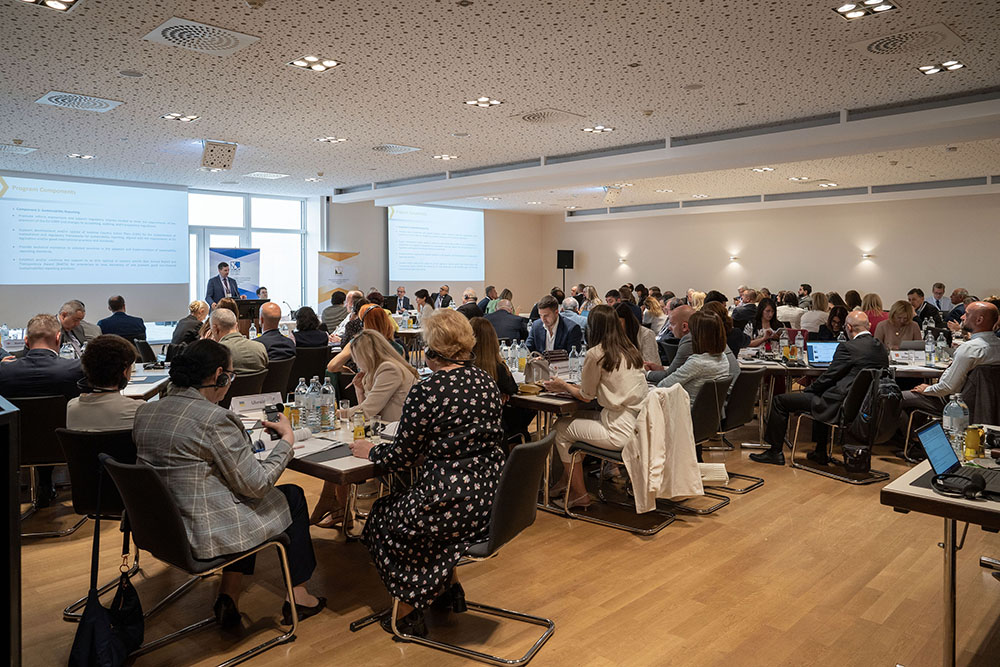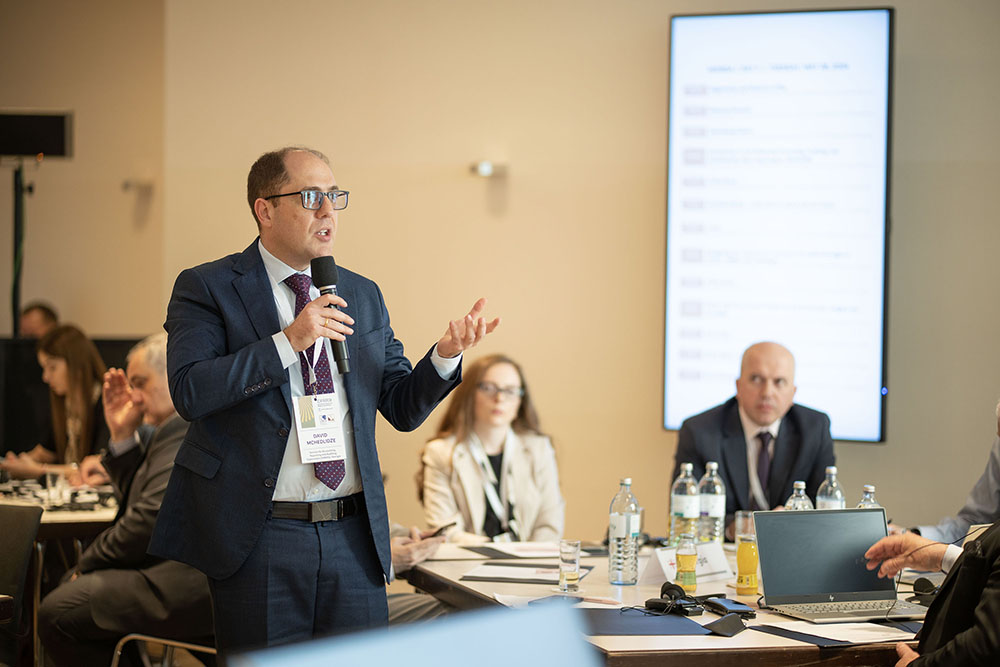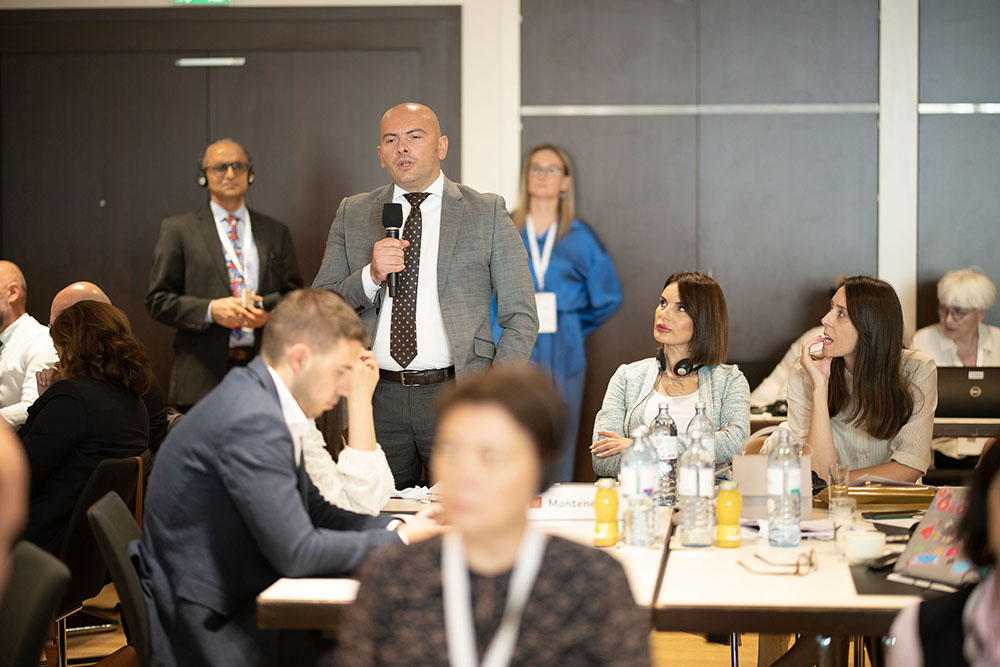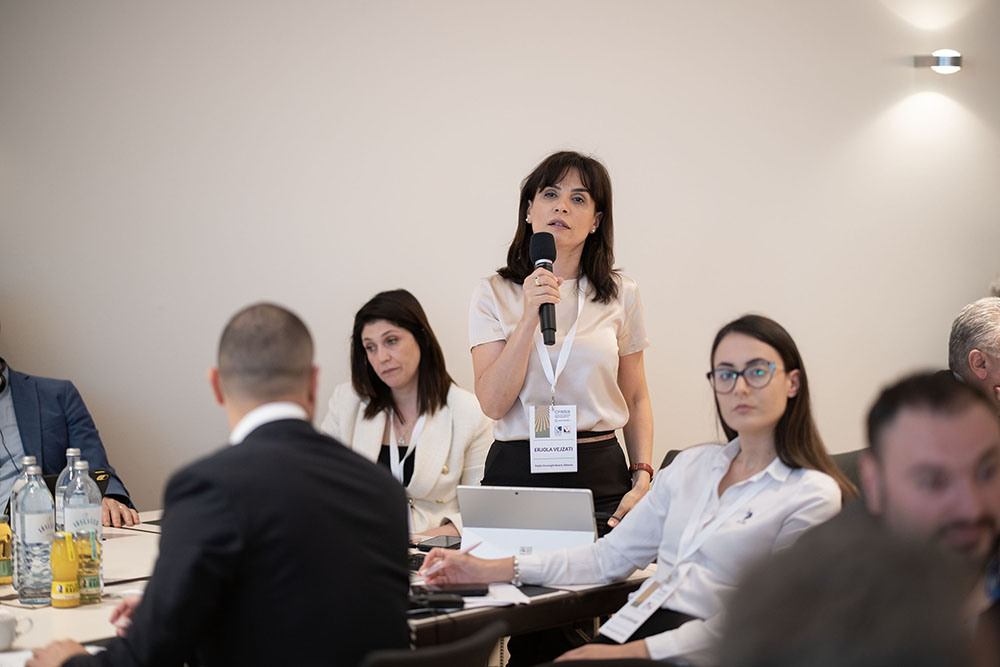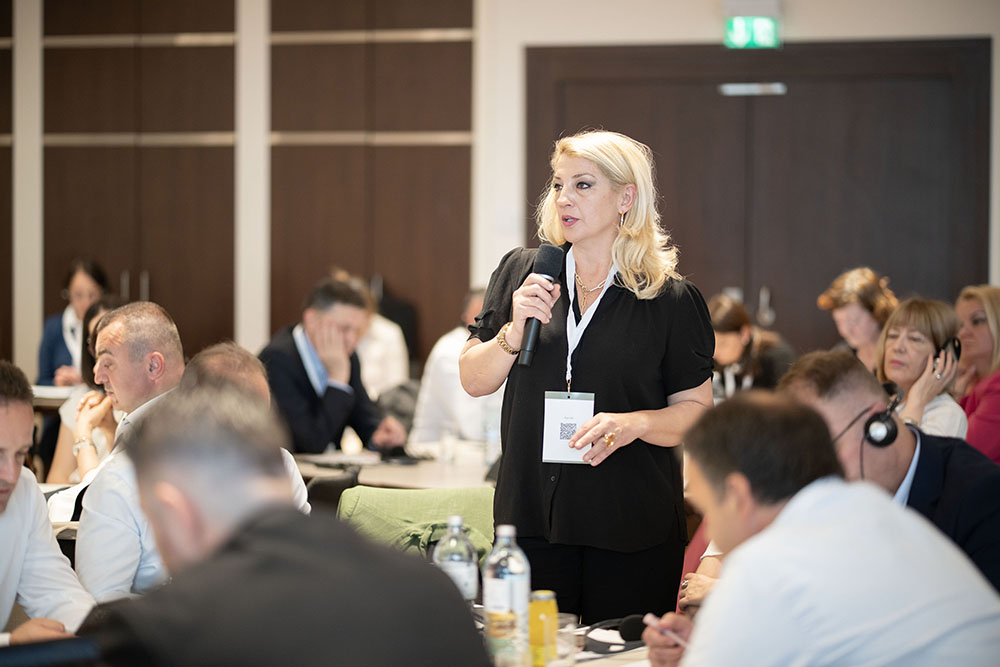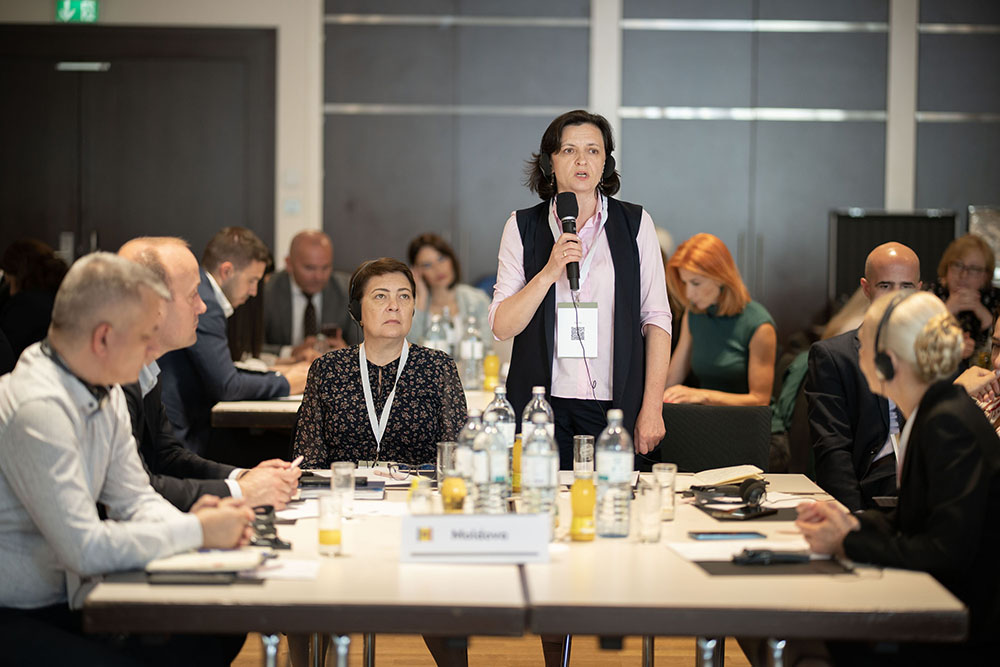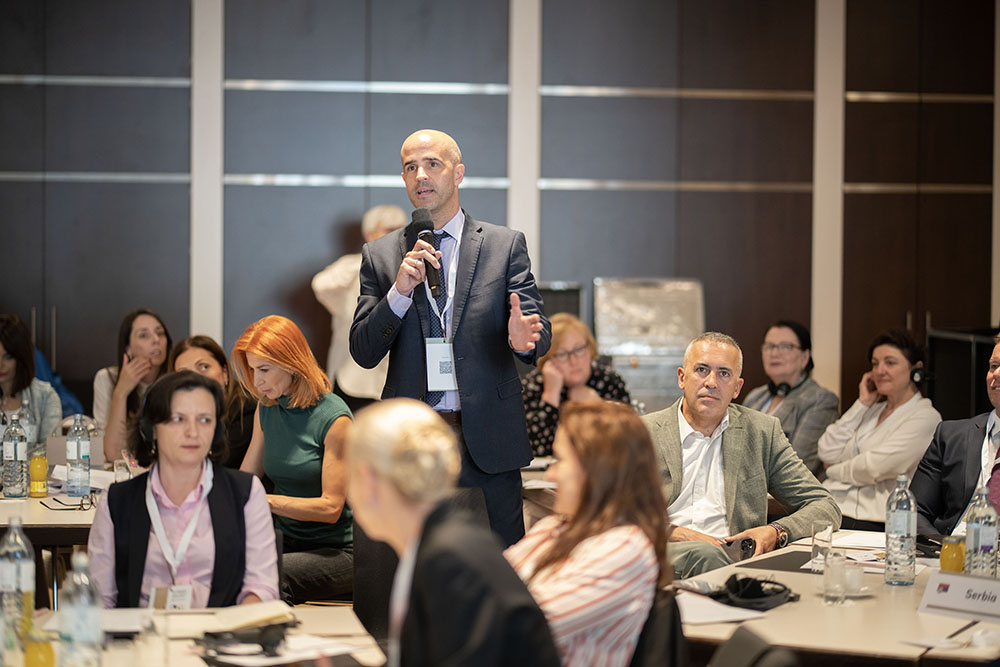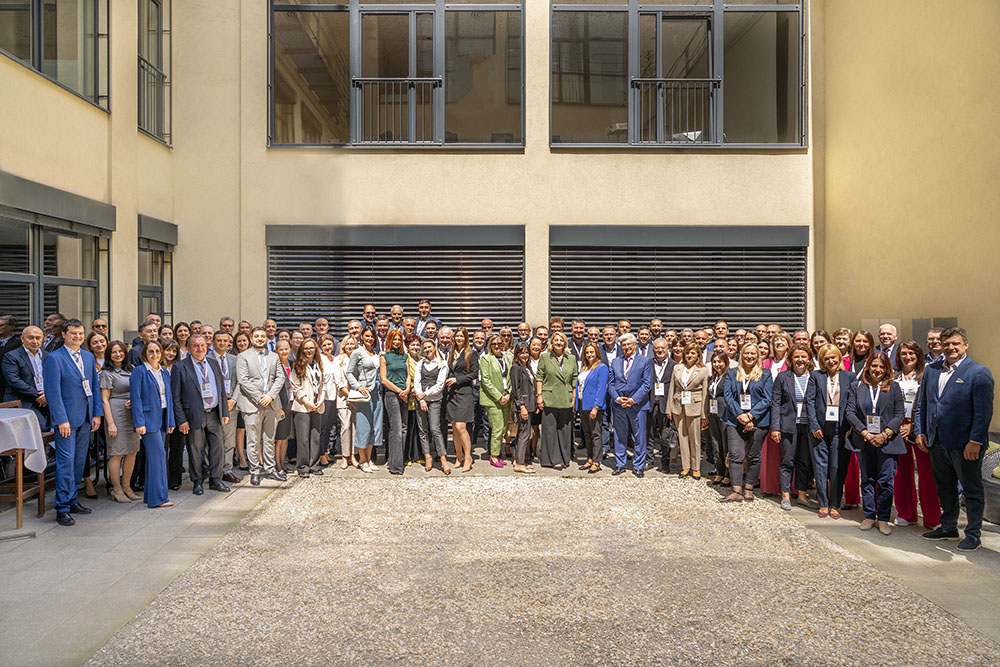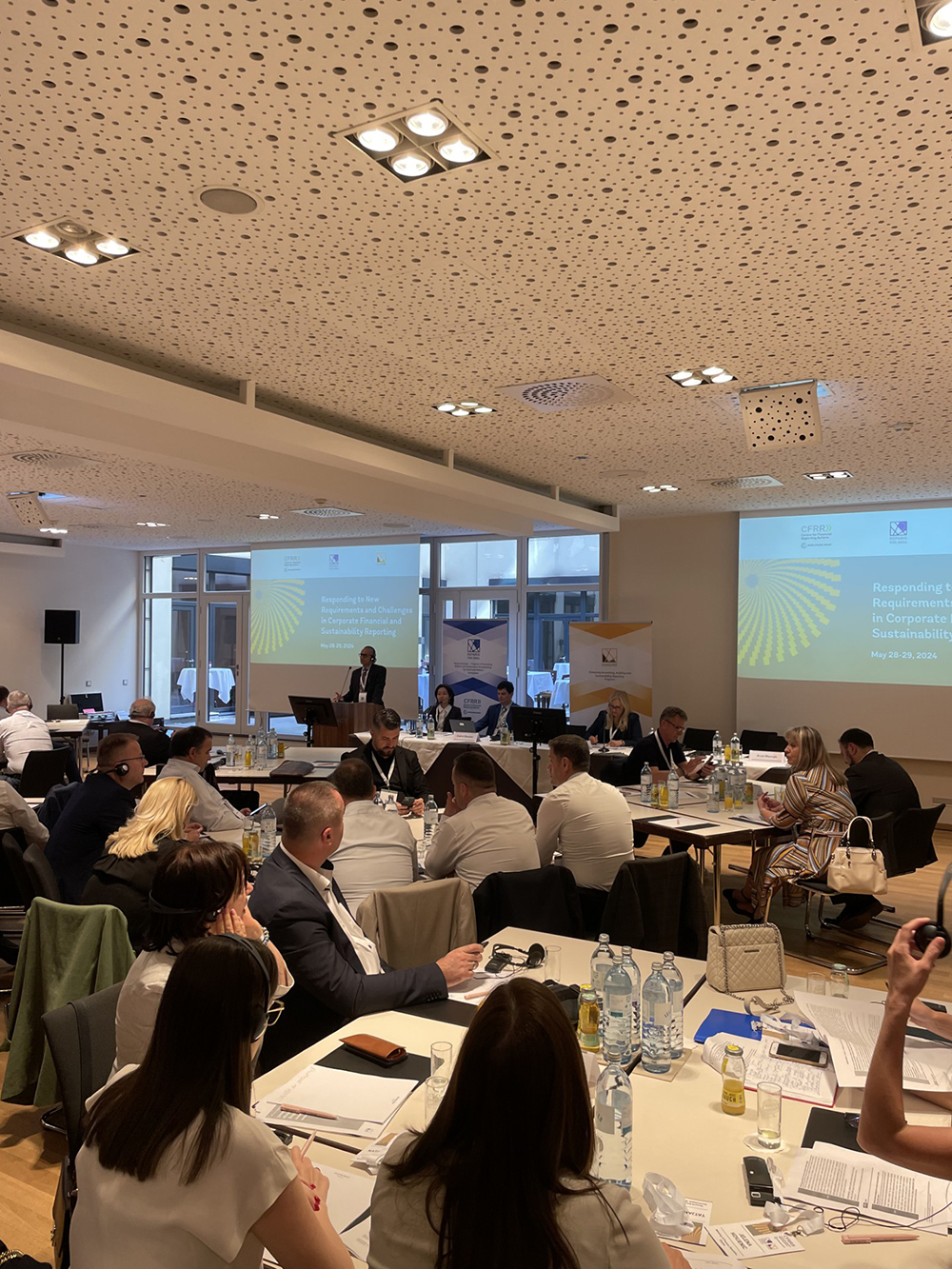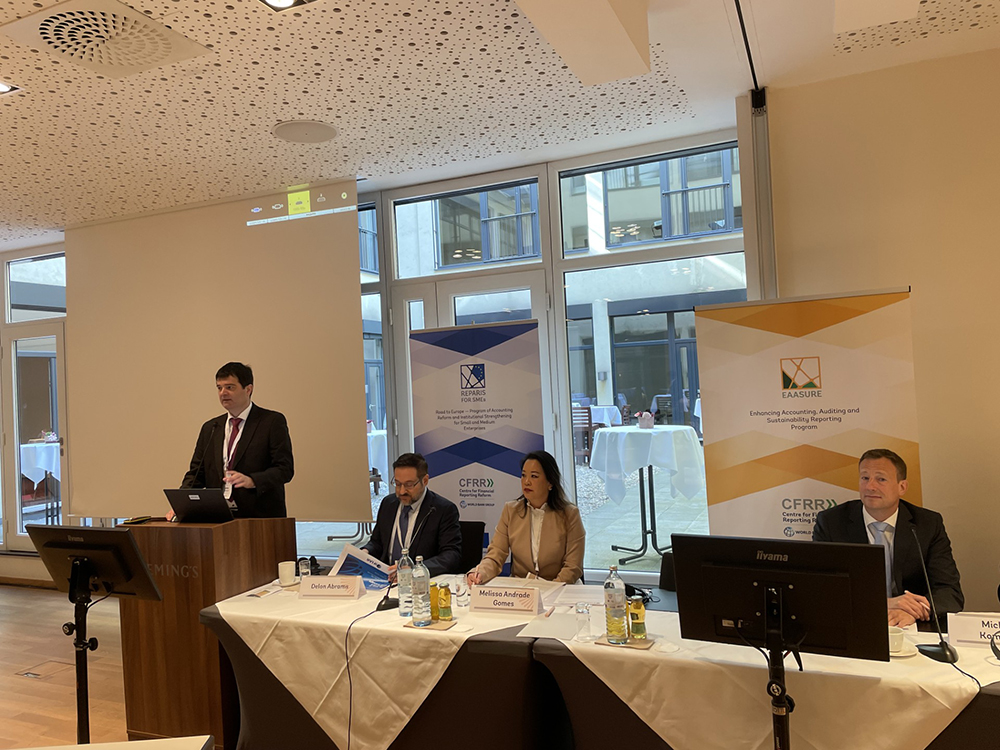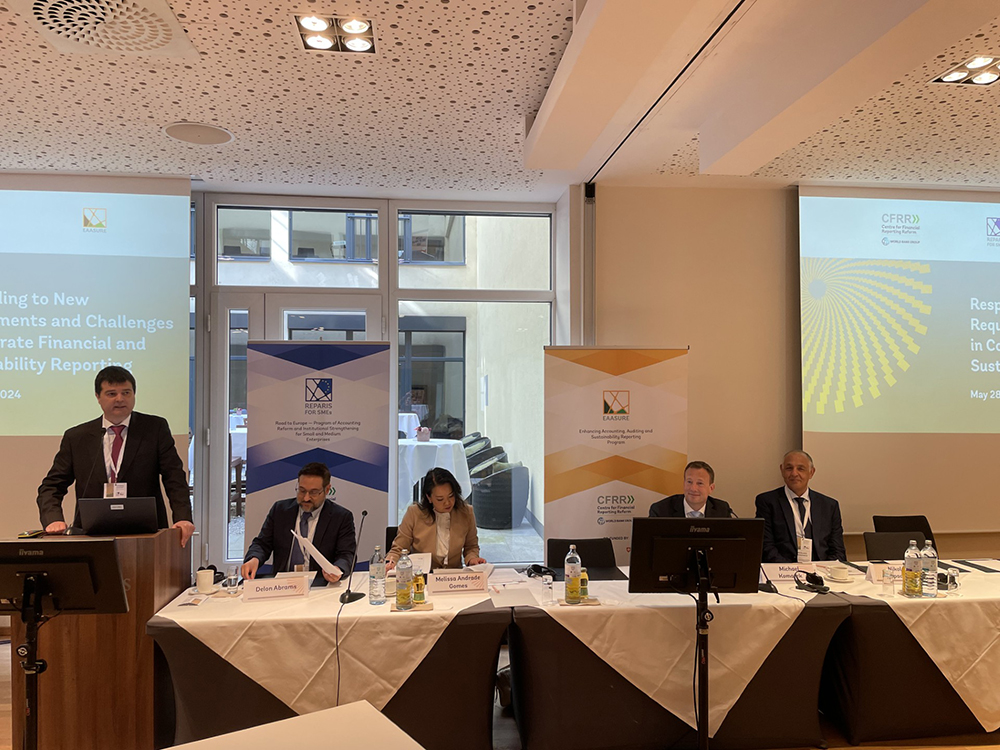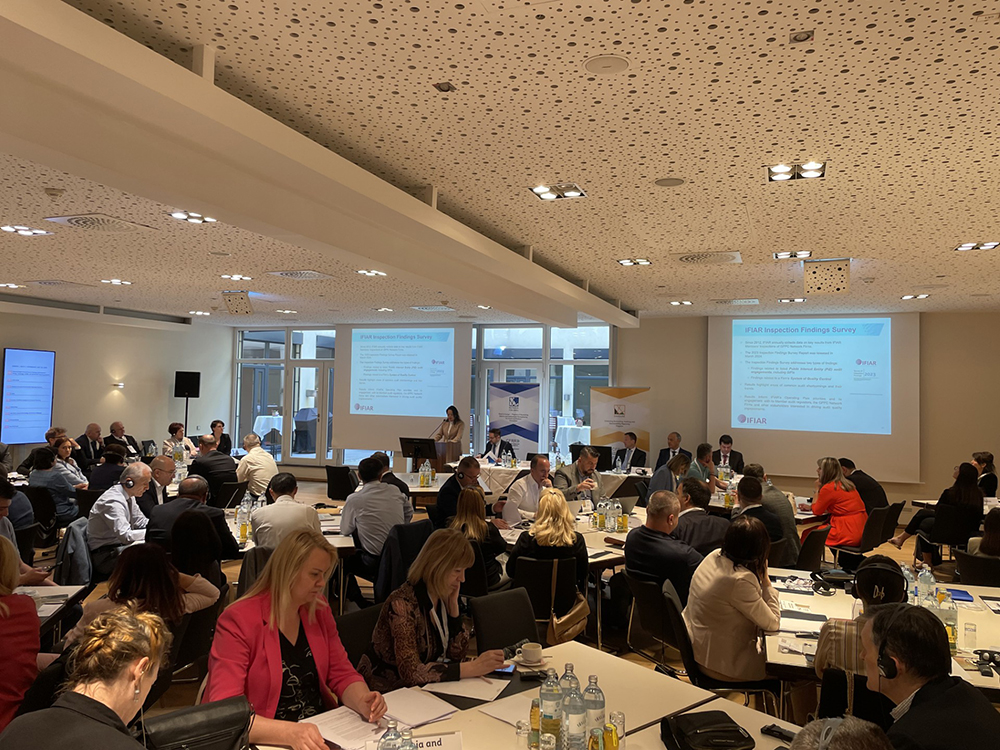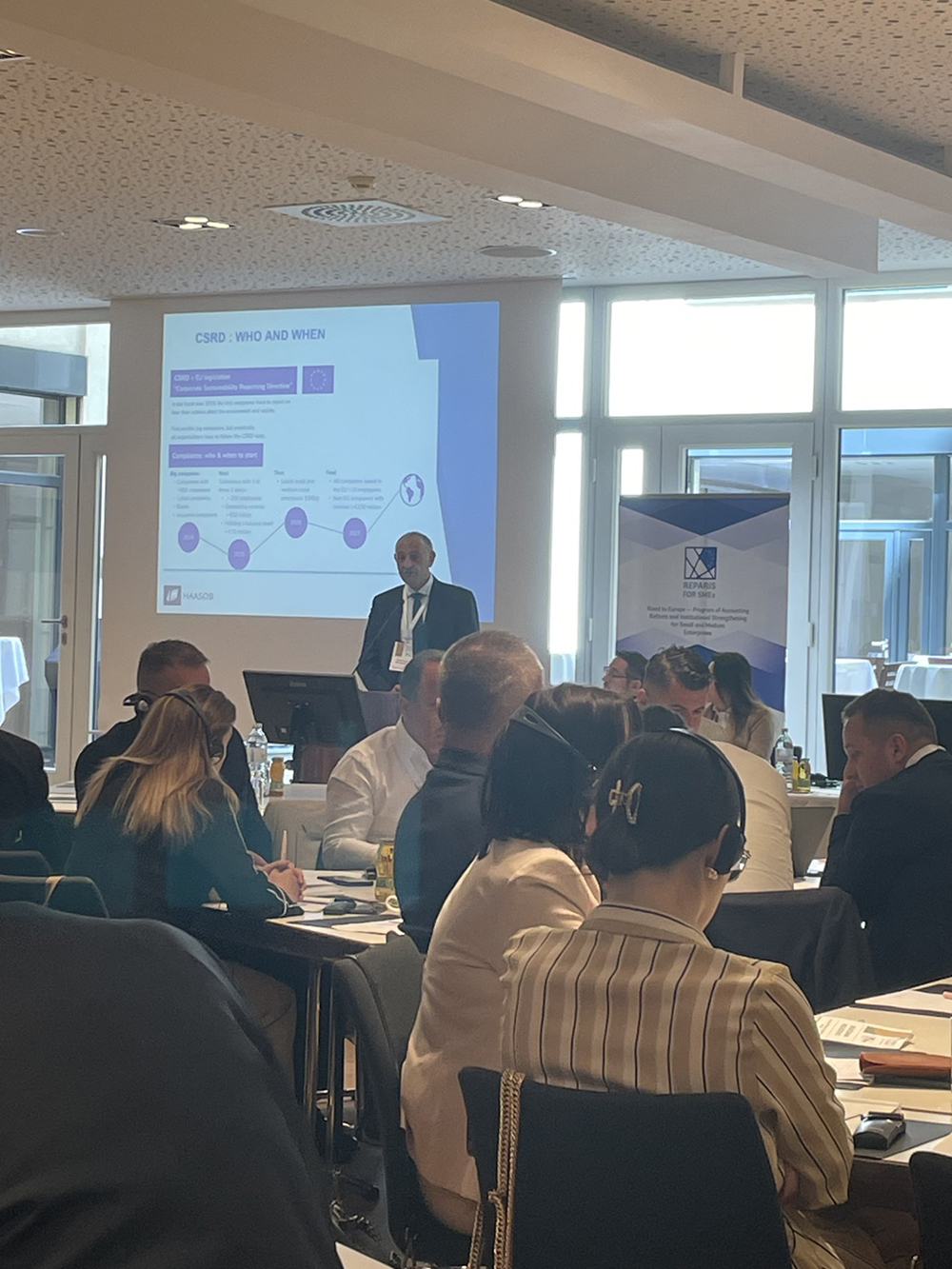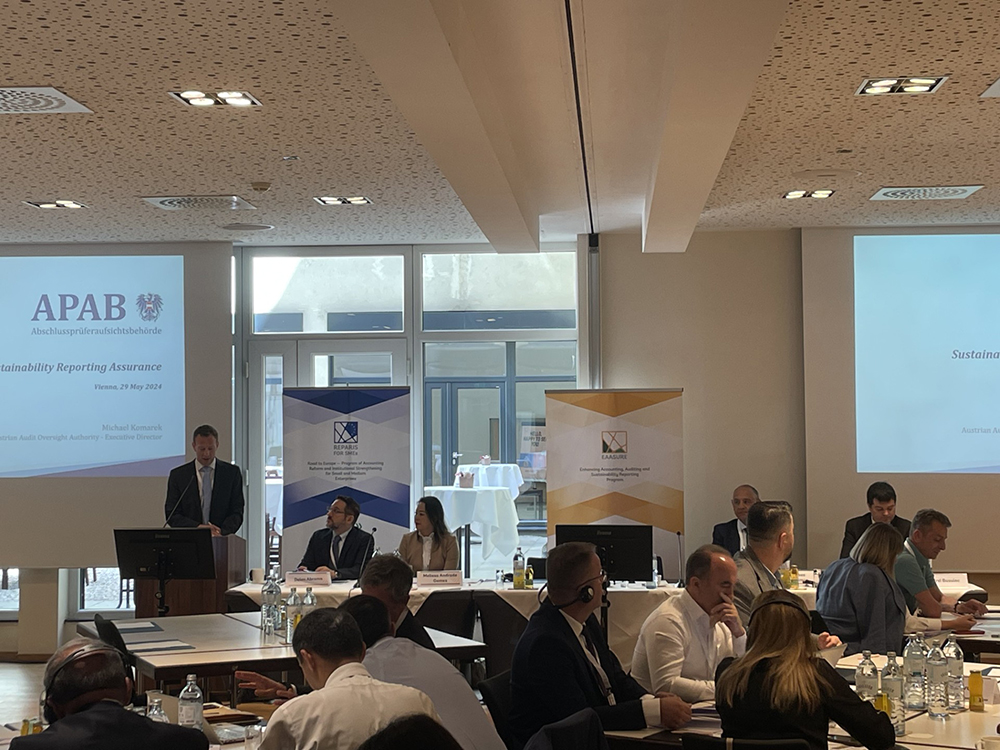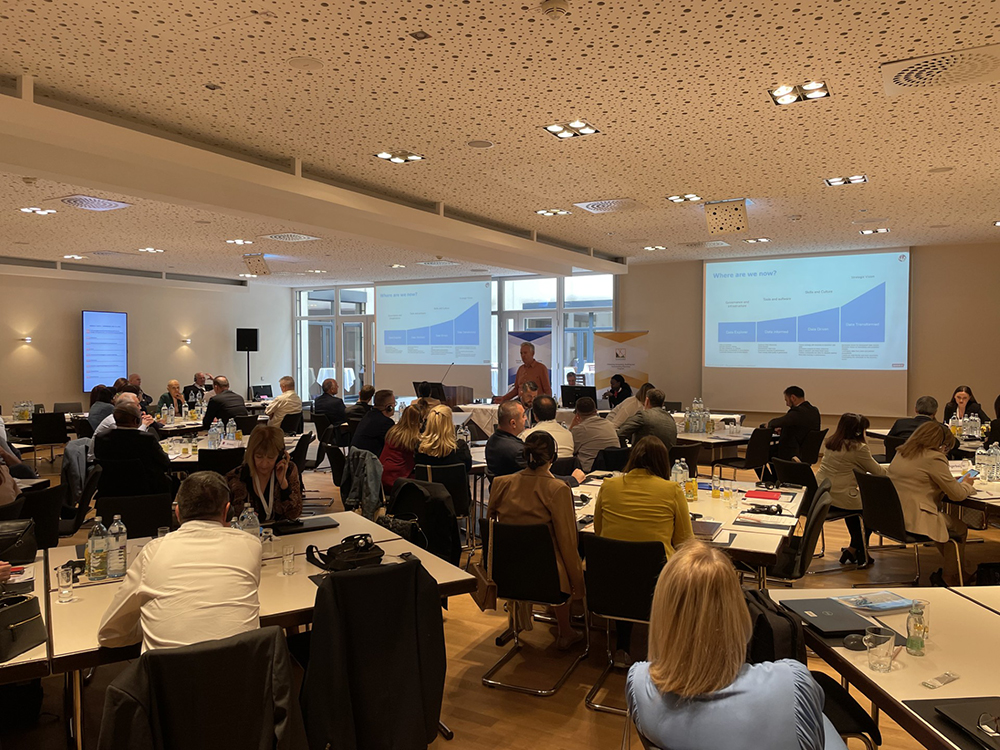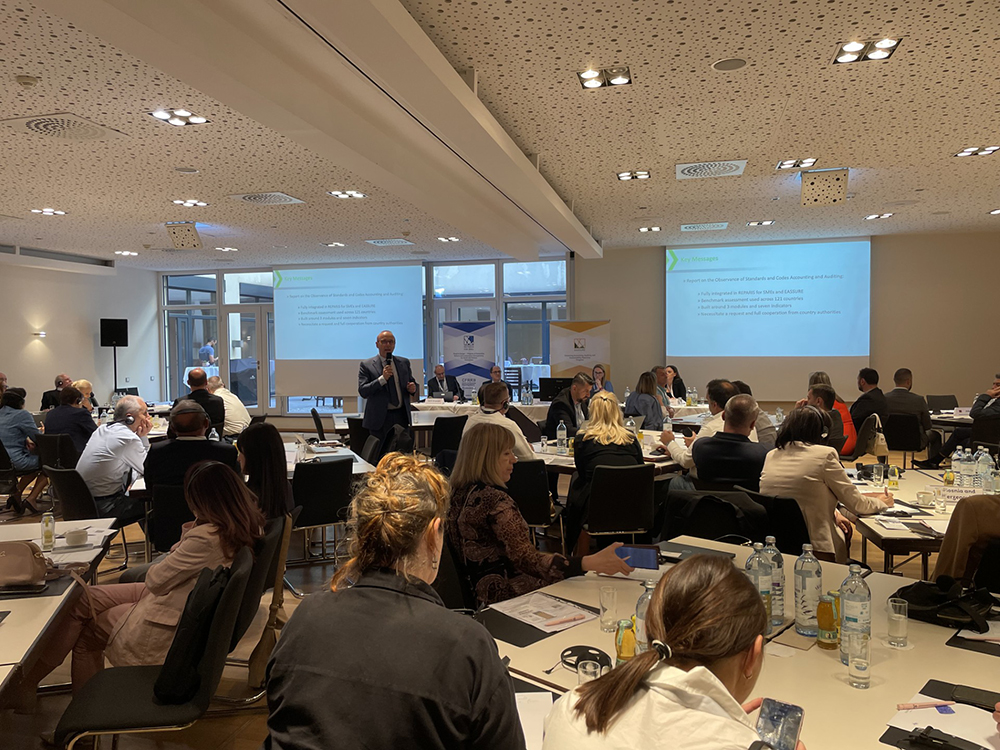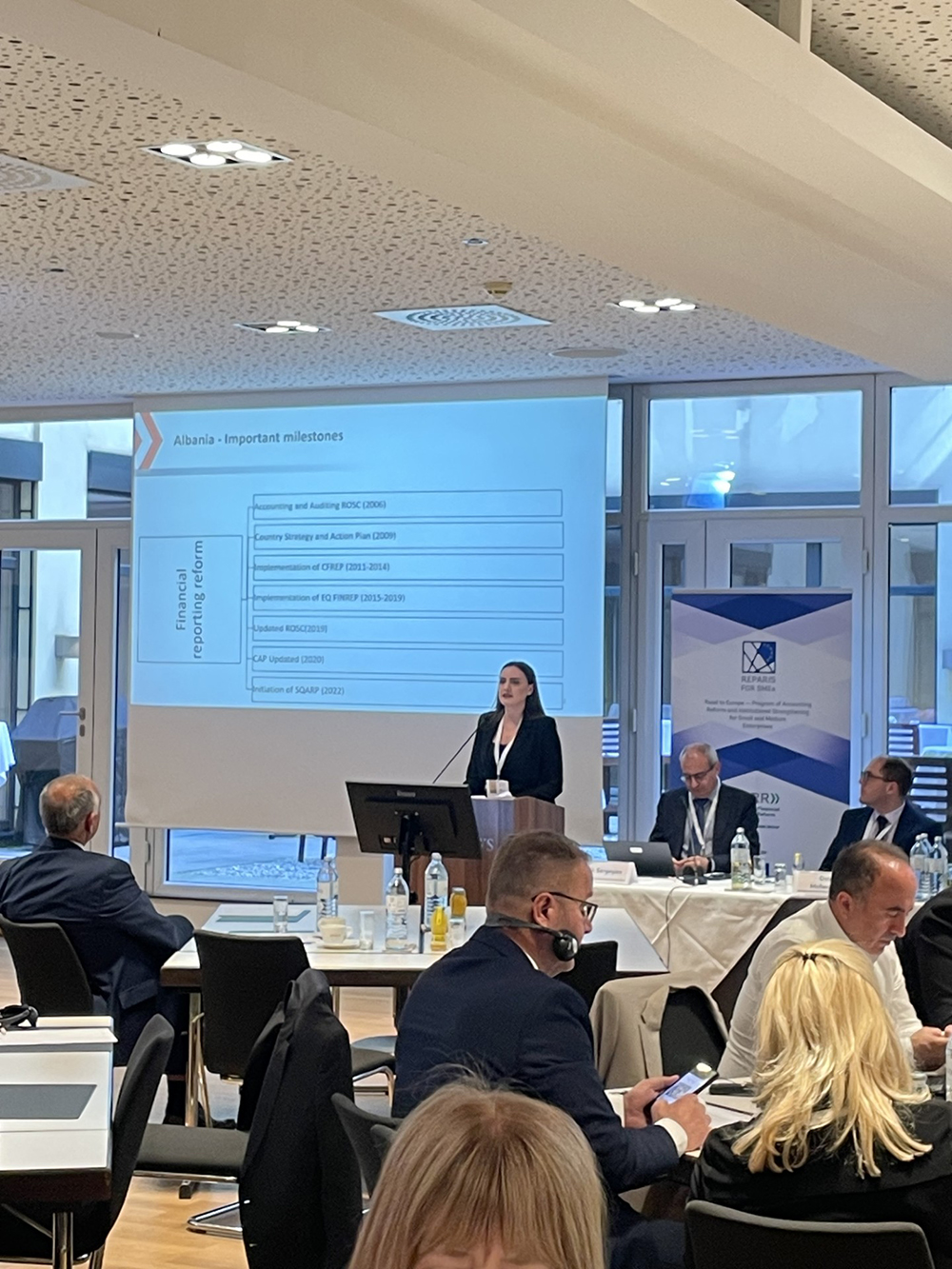A two-day Knowledge Sharing Event “Responding to New Requirements and Challenges in Corporate Financial and Sustainability Reporting” was held for more than 80 participants on May 28-29, 2024 in Vienna, Austria. The event was delivered under two flagship programs: the Road to Europe Program of Accounting Reform and Strengthening Institutions for Small and Medium-sized Enterprises (REPARIS for SMEs) and the new Enhancing Accounting, Auditing, and Sustainability Reporting Program (EAASURE) and was a great opportunity for participants to interact with international experts and regional peers on topics related to corporate sustainability and financial reporting, public oversight, and audit.
The aims of the event were:
- to launch the new regional EAASURE program.
- to bring together representatives from 11 beneficiary countries (Albania, Armenia, Azerbaijan, Bosnia and Herzegovina, Georgia, Kosovo, Moldova, Montenegro, North Macedonia, Serbia, and Ukraine) to discuss the response to new requirements and challenges in corporate financial and sustainability reporting, and agree on next steps to be taken at both regional and national levels.
The Directorate General for Financial Stability, Financial Services, and Capital Markets Union of the European Commission reflected on the impact of the 2014 EU audit reform on transparency for investors, the independence of auditors, supervision, and the level of audit fees and competition, drawing on a 2022 Study by the European Commission. The presentation included a useful update on the current EU regulatory framework of sustainability reporting assurance, including options available for countries such as defining assurance service providers and plans to prepare sustainability assurance standards.
The experience of the Hellenic Accounting and Auditing Standards Oversight Board (HAASOB) was discussed as part of a rich and interactive session, outlining the existing institutional and regulatory framework for public oversight and quality assurance in Greece. It covered topics such as independence safeguards, funding arrangements, the audit market, the inspection system, disciplinary system, and the current involvement of professional accounting associations in the public oversight system. The presentation included also specific framework and tasks of the HAASOB related to tax certificate (issued by the private sector auditors) and compliance with anti-money laundering and combating the financing of terrorism regulations. The presentation and following discussion generated considerable interest among participants and was very informative, especially for countries working towards amendment of their legal framework.
The International Forum of Independent Audit Regulators (IFIAR) joined the event to update participants on: (i) the 2023 IFIAR Inspection Findings Survey, (ii) the 2023 Report on the Use of Technology in Audits, (iii) IFIAR member preparations to oversee the assurance of sustainability reporting, and (iv) membership admission criteria for potential candidates. The Austrian Audit Oversight Authority and the Hellenic Accounting and Auditing Standards Oversight Board, both IFIAR members, complemented the presentation and discussed their perspective on the inspection findings and the status of technology used in audits as well as their plans for overseeing the assurance of sustainability reporting. Three IFIAR members from participating countries – the Public Oversight Board of Albania, Service for Accounting, Reporting and Auditing Supervision from Georgia (SARAS), and the Ukrainian Audit Public Oversight Body – joined the discussion and shared their perspectives, outlining the benefits of IFIAR membership. Both of the regional REPARIS for SMEs and EAASURE programs will continue to support participating countries in strengthening the capacity of competent authorities responsible for public oversight and offer guidance for countries interested in pursuing IFIAR membership.
A better understanding of the potential impact of Artificial Intelligence (AI) on corporate financial reporting and audit can help policymakers make decisions regarding the appropriate legal framework, in line with the EU Artificial Intelligence Act and good international practice. A dedicated session by the Institute of Chartered Accountants of England and Wales in cooperation with Engine B, a company from the United Kingdom, presented highlights from the EU Artificial Intelligence Act and examples of the characteristics and methods of AI solutions aimed at saving time and improving quality for auditors, accountants, and tax professionals. A comprehensive guide to generative AI and many other materials on the use of AI in corporate reporting, audit and other related areas is available from ICAEW here: Generative AI guide by ICAEW.
Participants formed groups to brainstorm and to report their views on the value of the Report on the Observance of Standards and Codes Accounting and Auditing (ROSC A&A) in terms of three dimensions: its evaluation of the financial reporting and auditing framework, the contribution of the recommendations to national reform efforts, and the reform momentum generated by the report and meeting with stakeholders. The session was informed by presentations from Georgia and Albania who participated recently in a ROSC A&A and a presentation of the ROSC A&A methodology by the CFRR team. Several countries reported their positive experience with the ROSC A&A and others expressed interest in undertaking a ROSC A&A, with sufficient time allowed for due diligence preparation.
A survey of participants confirmed that the event had been very useful both in terms of knowledge acquisition and the opportunity to share reform experiences and receive detailed and useful answers to their questions. There was high satisfaction with all agenda topics and presentations and praise for the organization and arrangements.
